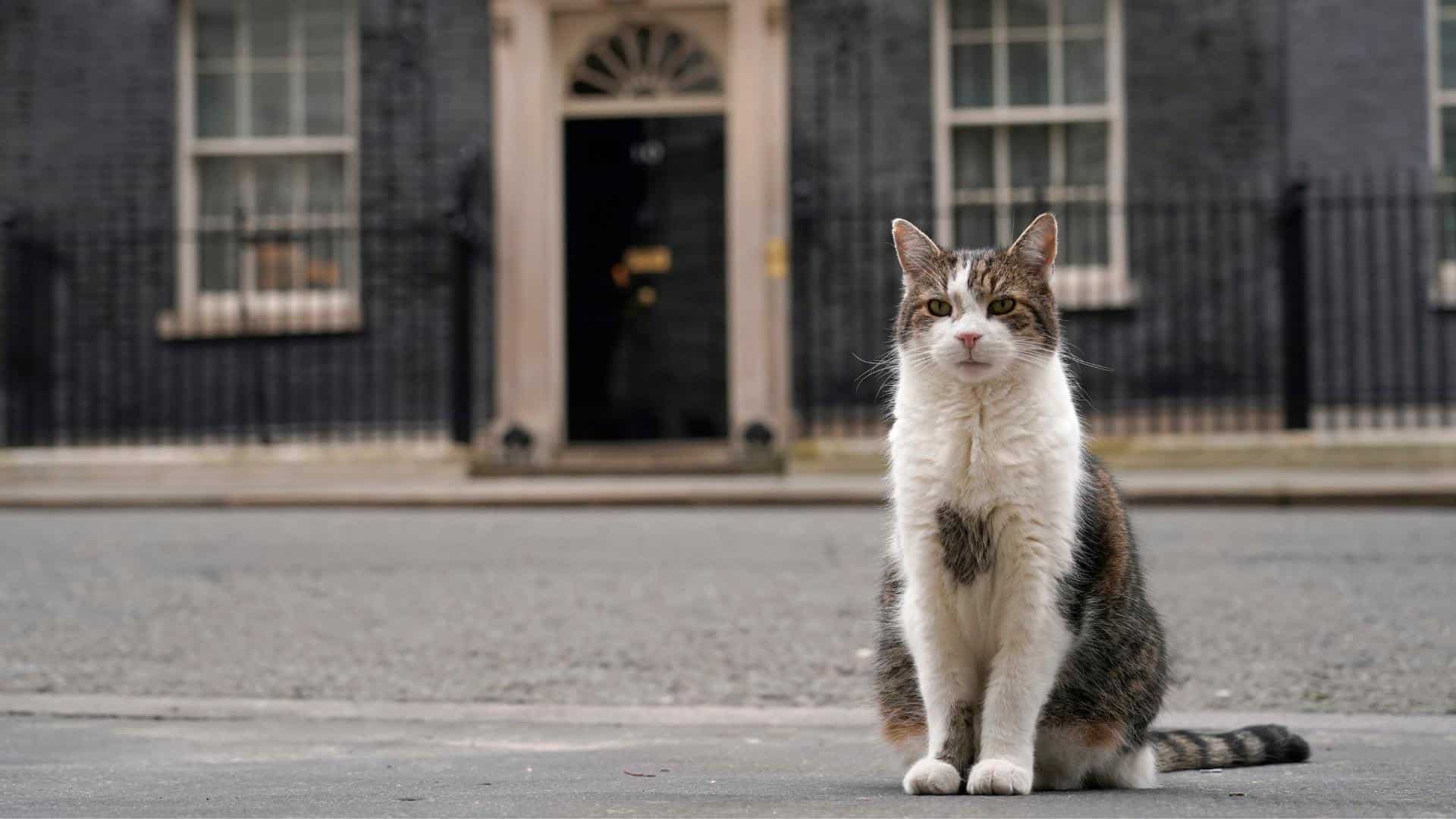With its sixth prime minister in eight years, will the British finally be able to stop faffing around and get on with it?

Larry the cat, Chief Mouser to the Cabinet Office at 10 Downing Street, poses for the cameras, 13 March 2024. Larry has chased mice there through six British governments and will retain the job under the government of Keir Starmer. (AP Photo/Alberto Pezzali)
National elections often herald, for voters, just more of the same. But every now and then, a choice comes along that has the potential fundamentally to alter a country’s direction.
One such election was Britain’s on 4 July 2024 which resulted in a decisive win for the Labour Party and its leader, Keir Starmer.
Labour won 411 seats in the 650-seat House of Commons, more than double its tally in 2019. The Conservatives won only 121 seats, a third of the number it had won five years earlier, with their share of the popular vote collapsing from 43% to 23%.
As I write, that was one month ago. But in this brief period, a new era has begun: one in which the United Kingdom’s many problems are being addressed in a more orderly and candid manner. Starmer, the new Labour prime minister, stresses the values of duty and public service. He is modest in his promises, underlining that the changes he wants to effect will take time.
Just as for all prime ministers, his government will have mixed success. Events and internal party politics will intrude. But it seems likely that decisions will be more carefully considered and better balanced against other priorities. This, to me, is the return of what I would call ‘normal’ government.
When chaos reigned
Contrast this with the last frantic, noisy nine years of rule by the Conservative Party. From 2015 onwards we saw five prime ministers as party and country were torn apart by Brexit.
First the 2016 referendum in which voters chose by 52% to 48% to leave the European Union, prompting then-Prime Minister David Cameron to resign; then bitter arguments under his successor, Theresa May, who favoured a ‘soft’ Brexit, with right-wingers of her party often voting against her in parliament; then her replacement by Boris Johnson, who led a ‘hard’ Brexit and was not bothered about the details; then his collapse into a morass of scandal; then the seven-week tenure of Liz Truss, whose tax cut plans caused a sharp rise in borrowing costs; and finally Rishi Sunak, who tried to restore order but never commanded authority.
There were three main factors in the Conservatives’ ignominious loss. First, Brexit, in which right-wing, anti-immigration, populist rhetoric came to dominate the ruling party, causing it to lose touch with voters’ primary concerns.
The siren promises of the Brexit campaign were not fulfilled, as immigration rose and the economy suffered, leaving those who voted for it disillusioned. Small boats continued to bring migrants across the English Channel.
Secondly, the Labour Party, which had itself lurched to the extreme in 2015 with its choice of Jeremy Corbyn, an old-style campaigning leftist, as leader, managed from 2020 onwards rapidly to return towards the centre under Starmer. This made it credible as a party that could deal with the third factor, which was the decline of Britain’s public services.
Can government work for its people?
Conservatives, preoccupied in mutually destructive warfare after the Brexit vote, had starved municipal services of funds and allowed the National Health Service to fall into crisis. There was a widespread perception of falling living standards and incompetent government. The pandemic and the war in Ukraine did not help, but neither did parties held by Johnson’s staff during the Covid lockdown and unseemly antics of other senior officials.
Thankfully, the chaos is now receding into the past. The noise has suddenly quietened. The new government is emphasising the depth of the problems that it has inherited, so as to make difficult decisions palatable.
Its priority is to get the finances in order before making unaffordable spending commitments towards restoring public services. This approach may not get the pulses racing, but after a decade of rowdy shouting, the very normality of it is welcome.
For those who fear that democracy is under threat in the western world, the British election outcome — alongside that in France three days later — offers reassurance that voters will ultimately reject populists who offer simplistic solutions that ignore the true complexities of government.
Now, the focus turns to the United States.
Three questions to consider:
- Why has Great Britain had so many leaders in the past eight years?
- What do many people hope for from the Labour government?
- What do you think the role of a national government should be?

Alexander Nicoll is a writer on defence and European issues. From 2003 to 2015, he was on the staff of the International Institute for Strategic Studies, where he was editor of the London think-tank’s annual review of international affairs. Previously he spent 18 years as a reporter and editor at the Financial Times, including as defence correspondent from 1997 to 2002. He began his career at Reuters as a correspondent in Hong Kong, Paris, Tehran and New York.
